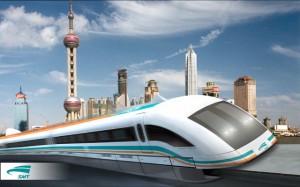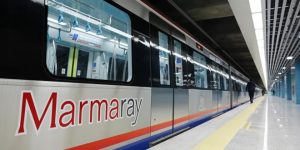The Economic Impacts of High-Speed Rail on Cities and their Metropolitan areas
High speed rail remains a popular discussion topic on our discussions board for reasons that go further than childhood fascinations. It appears from the many responses that, while generally accepted, some find the idea of a network of high speed rail (HSR) systems to be merely a far-fetched notion, one which will be perpetually stalled in the political quagmire. Others are slightly optimist but unclear on the economical benefits of HSR especially at the municipal level. It is perhaps for this reason that the U.S. Conference of Mayors launched a report touting the economic benefits of high-speed passenger rail.
Benefits
The report analyzes four cities, Albany, N.Y.; Chicago; Los Angeles; and Orlando, which represent metropolitan areas impacted by planned HSR. According to the report, HSR will add roughly $1.125 billion combined annual revenue by 2035. The annual revenues referred to in the report encapsulate, job creation, improved market access, connectivity; travel time savings; and income and business sales in each of the subject cities.
In addition the economic benefits, the report also touts the following benefits associated with HSR:
- improved access to labor markets;
- driving higher-density, mixed-use development at train stations;
- gains in travel efficiency;
- expanded visitor markets; and
- supporting the growth of technology clusters;
Recommendations
This report clearly provides a compelling case for added financial involvement by the Federal government. This impetus will not only enhance America’s infrastructure to match that of Japan et al, but might also spur economic development as estimated in the report. However, is the report overly ambitious in its analysis of the potential economic benefits considering that high speed rail carries obstacles that might take years to address? If that is the case, are we not better off analyzing proven competing modes and optimizing those existing modes to serve us better?
What are your thoughts on the economic potential of high-speed rail?




I agree with you. The report is highly optimistic and it doesn’t consider the potential shortfalls. Additionally, the self income-generation models proposed seem to totally ignore necessary government subsidies. Japanese and Chinese governments continually subsidies their high speed rail and it has taken them long to get where they are now.
These mayors seem to be trying to entice their electorate by painting this high-speed rail utopia, but you know what happens you over-promise and under deliver? Well, ask Obama.
Instead of criticizing the financial aspects of the system, why not focus on why it is necessary that we have a high speed rail system.
When these congestion delays become too great, the business community and the resultant jobs will look elsewhere.